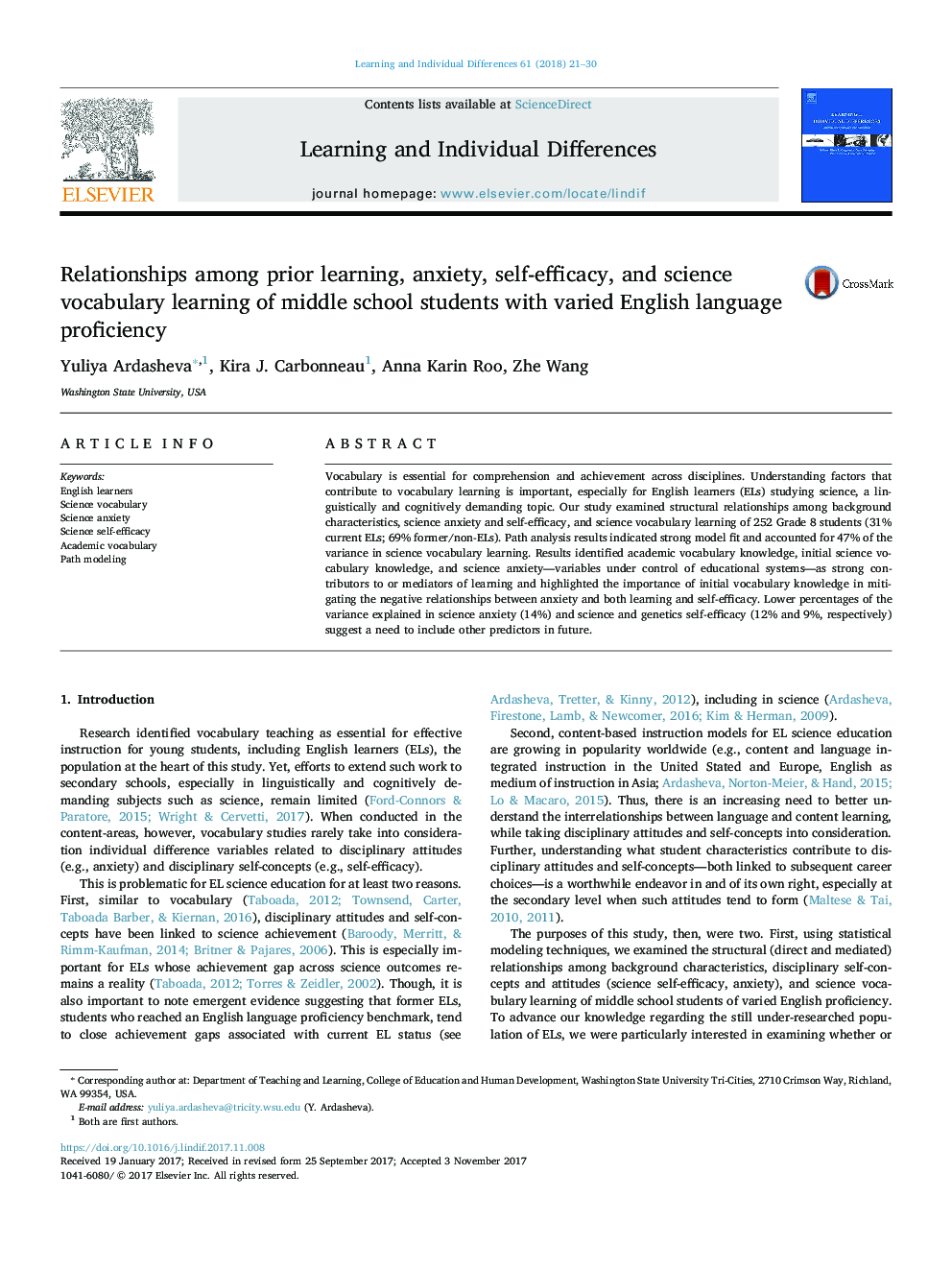| Article ID | Journal | Published Year | Pages | File Type |
|---|---|---|---|---|
| 6844490 | Learning and Individual Differences | 2018 | 10 Pages |
Abstract
Vocabulary is essential for comprehension and achievement across disciplines. Understanding factors that contribute to vocabulary learning is important, especially for English learners (ELs) studying science, a linguistically and cognitively demanding topic. Our study examined structural relationships among background characteristics, science anxiety and self-efficacy, and science vocabulary learning of 252 Grade 8 students (31% current ELs; 69% former/non-ELs). Path analysis results indicated strong model fit and accounted for 47% of the variance in science vocabulary learning. Results identified academic vocabulary knowledge, initial science vocabulary knowledge, and science anxiety-variables under control of educational systems-as strong contributors to or mediators of learning and highlighted the importance of initial vocabulary knowledge in mitigating the negative relationships between anxiety and both learning and self-efficacy. Lower percentages of the variance explained in science anxiety (14%) and science and genetics self-efficacy (12% and 9%, respectively) suggest a need to include other predictors in future.
Related Topics
Social Sciences and Humanities
Psychology
Developmental and Educational Psychology
Authors
Yuliya Ardasheva, Kira J. Carbonneau, Anna Karin Roo, Zhe Wang,
